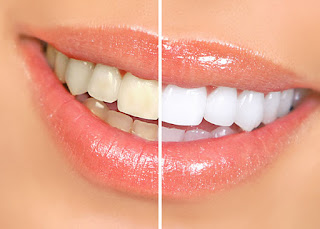 When considering teeth whitening, we know you are going to face a veritable barrage of choices. The reality is that the popularity of teeth whitening has made it a household pursuit, with billions of dollars in sales driving an insatiable industry. As a result, what you have is a marketplace saturated with hundreds of products, advertising that promises instant and fantastic results, and a patient that is often more confused than when they first started out. With that in mind, here are some frequently asked questions and our answers to them.
When considering teeth whitening, we know you are going to face a veritable barrage of choices. The reality is that the popularity of teeth whitening has made it a household pursuit, with billions of dollars in sales driving an insatiable industry. As a result, what you have is a marketplace saturated with hundreds of products, advertising that promises instant and fantastic results, and a patient that is often more confused than when they first started out. With that in mind, here are some frequently asked questions and our answers to them.
Is there more than one way to whiten my teeth?
Yes, you can have them professionally whitened or try a DIY kit from the drug store. The first question you should be asking yourself is if you want to try multiple products and attempt to find the one that is best for you, or if you would prefer to come in and allow us to handle your entire teeth whitening process. When starting to look at the nuances of teeth whitening, it may not seem like much until you pay attention and realize how complicated it can be when done by yourself. For example, you will want to know what teeth whitening kits can give you the right amount of whitening solution, while making sure it is not too much. You will also need to ask yourself what to do about individual teeth or teeth that are unevenly stained.
Are the results the same no matter what?
No, they are not. The only way to guarantee a dramatic change is to schedule a professional teeth-whitening. Perhaps the most important question of all is what you do if you do not get the results you desire. Most people make the mistake of using a product over and over again with the hope that eventually their teeth will be white enough. Overuse is the most common reason why people who are whitening their teeth end up needing to see the dentist since it can result in sensitivity and weakening of the teeth. Keep in mind that to whiten teeth, you need to use an oxidization process that releases free radicals into the enamel. It is always recommended that you, at the very minimum, consult with a dentist before using any product that could influence the condition of your teeth. This is not an issue when you have a professional teeth whitening because our solution will work to remove the deep stains and discoloration from within your teeth. This way, you can see positive results on the first attempt.
How is the whitening solution applied?
Apart from the solution containing the whitening ability, the most important part of a teeth whitening kit are the trays. These trays are designed to do two things: fit over the teeth and hold the solution that will do the whitening. The objective is for the whitening trays to keep the whitening solution in constant contact with the enamel for the duration of the whitening process. However, this is where mass manufacturing fails to meet the same standards as your teeth whitening dentist. When you come in to see the dentist, the trays we use are custom fabricated for your teeth. This captures every nuance and every millimeter of your unique teeth. As a result, you get a clean product application that does not get everywhere and maximizes the whitening ability. On the other hand, the over the counter products are mass produced using a “one size fits all” approach to their trays. More often than not, this allows the whitening solution to leak onto the sensitive gum tissue or does not provide an even coating of the whitening solution, bringing about uneven results.
 As a local
As a local